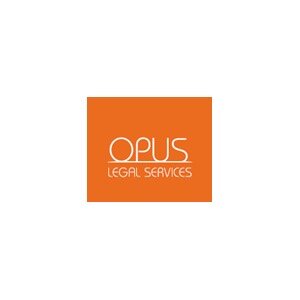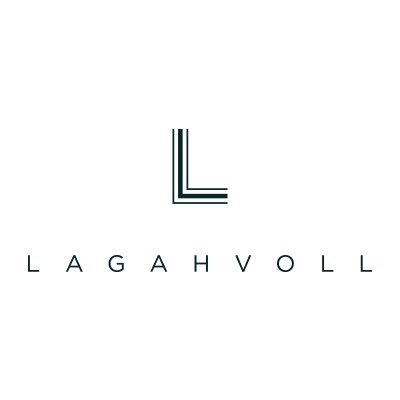Best Bankruptcy & Debt Lawyers in Reykjavik
Share your needs with us, get contacted by law firms.
Free. Takes 2 min.
List of the best lawyers in Reykjavik, Iceland
About Bankruptcy & Debt Law in Reykjavik, Iceland
Bankruptcy & Debt Law in Reykjavik, as in the rest of Iceland, is designed to help individuals and businesses resolve financial distress. The legal framework provides mechanisms for both restructuring debts and for formal bankruptcy proceedings, aimed at achieving a fair distribution of assets among creditors. Whether you are an individual facing overwhelming personal debts or a business grappling with insolvency, understanding the legal landscape is crucial for making informed decisions.
Why You May Need a Lawyer
Several common situations may necessitate the help of a lawyer specializing in Bankruptcy & Debt:
- Personal Insolvency: If you're unable to pay your debts as they fall due, a lawyer can help you navigate the complexities of filing for personal bankruptcy or seeking alternative debt resolution methods.
- Business Insolvency: For businesses struggling with insolvency, legal expertise is vital in restructuring debts, negotiating with creditors, or deciding whether to file for bankruptcy.
- Debt Collection Disputes: If you're facing aggressive debt collection efforts, a lawyer can protect your rights and challenge any unlawful practices.
- Creditor Representation: Creditors seeking to recover debts from insolvent individuals or businesses may also require legal representation to ensure they are treated fairly in bankruptcy proceedings.
Local Laws Overview
The key aspects of local laws in Reykjavik relevant to Bankruptcy & Debt include:
- Personal Bankruptcy: This process allows individuals to discharge certain debts and get a fresh start, although it comes with its own set of eligibility criteria and obligations.
- Corporate Insolvency: Icelandic law provides for both restructuring procedures and liquidation, depending on the financial situation and prospects of the business.
- Debt Collection: There are stringent regulations governing the practices of debt collectors, designed to protect debtors from abuse while ensuring that creditors can pursue legitimate claims.
- Debt Restructuring: Various procedures exist for restructuring debts outside of bankruptcy, including voluntary arrangements and court-sanctioned plans.
Frequently Asked Questions
What is the difference between bankruptcy and insolvency?
Bankruptcy typically refers to legal insolvency proceedings for individuals, while insolvency can apply to both individuals and businesses and often involves a situation where liabilities exceed assets.
Can I keep any assets after declaring bankruptcy in Reykjavik?
Yes, certain assets may be exempt from liquidation under Icelandic law, allowing individuals to keep essential belongings and assets needed for basic living and earning a livelihood.
How long does a bankruptcy proceeding usually take?
The duration can vary based on the complexity of the case and the court's schedule, but personal bankruptcy proceedings typically take several months to a year.
Is it possible to negotiate a debt settlement before filing for bankruptcy?
Yes, debtors and creditors often negotiate settlements or restructuring plans to avoid the formalities and consequences of bankruptcy.
Can a business continue operating during insolvency proceedings?
In some cases, businesses can continue to operate under supervision while restructuring plans are developed and implemented to restore financial stability.
Will bankruptcy affect my credit rating?
Yes, declaring bankruptcy will have a significant impact on your credit rating, making it more challenging to obtain credit in the future.
Can my pension be taken in bankruptcy proceedings?
Pensions are generally protected from bankruptcy proceedings under Icelandic law, ensuring that individuals retain their retirement funds.
What are my rights if a debt collector is harassing me?
Debt collectors must adhere to legal standards, and harassment is prohibited. You can report unlawful practices and seek legal recourse.
How do I file for bankruptcy in Reykjavik?
Filing for bankruptcy involves submitting a petition to the District Court along with required documentation. Legal advice is highly recommended during this process.
Can I choose which debts to include in a bankruptcy filing?
No, all debts must be disclosed and included in the bankruptcy proceedings. Selective disclosure can result in legal complications.
Additional Resources
Several resources can be helpful for those seeking legal advice on Bankruptcy & Debt in Reykjavik:
- Local Bar Association: Provides referrals to qualified lawyers specializing in bankruptcy and debt matters.
- Financial Supervisory Authority (FME): Offers information and guidance on financial regulations and consumer rights.
- Consumer Agency: Assists with issues related to consumer debt and offers advice on financial management.
- District Court of Reykjavik: Handles bankruptcy filings and provides information on legal procedures and requirements.
Next Steps
If you need legal assistance in Bankruptcy & Debt, consider the following steps:
- Consult a Lawyer: Seek out a lawyer who specializes in bankruptcy and debt law to get personalized advice and representation.
- Gather Documentation: Organize your financial documents, including debts, assets, income, and expenses, to provide a clear picture of your situation.
- Understand Your Options: Discuss with your lawyer the various options available to you, whether filing for bankruptcy, negotiating a settlement, or pursuing debt restructuring.
- Take Action: Follow the legal steps recommended by your lawyer to address your financial challenges and work towards a resolution.
Remember, timely legal advice and action can significantly impact the outcome of your financial situation, so don’t hesitate to seek professional help.
Lawzana helps you find the best lawyers and law firms in Reykjavik through a curated and pre-screened list of qualified legal professionals. Our platform offers rankings and detailed profiles of attorneys and law firms, allowing you to compare based on practice areas, including Bankruptcy & Debt, experience, and client feedback.
Each profile includes a description of the firm's areas of practice, client reviews, team members and partners, year of establishment, spoken languages, office locations, contact information, social media presence, and any published articles or resources. Most firms on our platform speak English and are experienced in both local and international legal matters.
Get a quote from top-rated law firms in Reykjavik, Iceland — quickly, securely, and without unnecessary hassle.
Disclaimer:
The information provided on this page is for general informational purposes only and does not constitute legal advice. While we strive to ensure the accuracy and relevance of the content, legal information may change over time, and interpretations of the law can vary. You should always consult with a qualified legal professional for advice specific to your situation.
We disclaim all liability for actions taken or not taken based on the content of this page. If you believe any information is incorrect or outdated, please contact us, and we will review and update it where appropriate.
Browse bankruptcy & debt law firms by service in Reykjavik, Iceland
Reykjavik, Iceland Attorneys in related practice areas.














